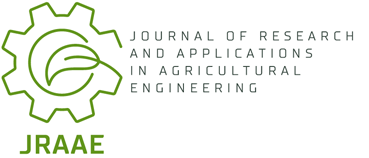Current issue
Online First
Archive
Instructions for Authors
Guide for Authors
Peer Review Policy
Research Ethics Policy
Ghostwriting and Guest Authorship
Copyright
Open Access Policy
Plagiarism
About the Journal
Aim and Scope
Scientific Board
Publisher
Editorial Board
Indexing in Databases
Personal Data Protection
Repository Policy
Contact
ORIGINAL PAPER
Opportunities for the development of organic farming system in the Świętokrzyskie Province
Journal of Research and Applications in Agricultural Engineering 2010;55(3):205-209
KEYWORDS
ABSTRACT
In the rapidly growing number of organic farms and processing plants in Poland, there is a need for research of the opportunities for development of this management system as well as the barriers that hamper development. This survey was carried out in 2007-2009 in 96 randomly selected organic farms in the Świętokrzyskie Province. The results indicate that when farmers begin the conversion into organic production, especially those with no agricultural education, depend mainly on the financial assistance from the European Union and not on the profits from production. The next problem lies with difficulties in the organization of selling yields on the market and a lack of product promotion. It is also essential to be affiliated with a group of producers, however most producers have difficulties seeing the benefits of participation in such groups. Farmers with agricultural education who lead selling, especially of fruit and vegetables, are less concerned with agricultural advisers. This is most likely due to the poor education of specialist advisers in organic farming.
REFERENCES (14)
1.
Bavec F., Bavec M.: Organic production and use of alternative crops. Wyd. Taylor & Francis Boca Raton, London, New York., 2007, ss. 230.
3.
Kucińska K., Pelc I., Artyszak A.: Development of organic agriculture in Poland. Mat. Konf. European Joint Organic Congress. 30 – 31.05.2006. Odense, Denmark, s. 118–119.
4.
Moschitz H., Stolze M.: Organic forming Policy In Europe. A network analisis. Mat. Konf. European Joint Organic Congress. 30 – 31.05.2006. Odense, Denmark, s. 112–113.
5.
Maciejczak M.: Marketing żywności ekologicznej w Europie i Polsce. Wydział Nauk Ekonomicznych, SGGW, Warszawa 2007, www.maciejczak.pl/download/rpe-w6.pdf.
6.
Najwyższa Izba Kontroli. Informacja o wynikach kontroli rolnictwa ekologicznego w Polsce. Departament Środowiska, Rolnictwa i zagospodarowania Przestrzennego. KSR-410-10/2009 Nr ewid. 182/2009/ P09106/KSR, 2010.
7.
Schmidke K.: Mat. Konf. Pilnitz Summer Academy, HTV Dresden University of Aplied Science i Akademia Rolnicza w Poznaniu. 3 – 8.09.2006. Pillnitz.
8.
Simion S.: Mat. Konf. Pilnitz Summer Academy, HTV Dresden University of Aplied Science i Akademia Rolnicza w Poznaniu. 3–8.09.2006. Pillnitz.
9.
Tymiński A.: Rynek produktów ekologicznych na świecie oraz w Polsce. WSPA, Lublin, 2005, s 23 – 34.
Share
RELATED ARTICLE
We process personal data collected when visiting the website. The function of obtaining information about users and their behavior is carried out by voluntarily entered information in forms and saving cookies in end devices. Data, including cookies, are used to provide services, improve the user experience and to analyze the traffic in accordance with the Privacy policy. Data are also collected and processed by Google Analytics tool (more).
You can change cookies settings in your browser. Restricted use of cookies in the browser configuration may affect some functionalities of the website.
You can change cookies settings in your browser. Restricted use of cookies in the browser configuration may affect some functionalities of the website.


